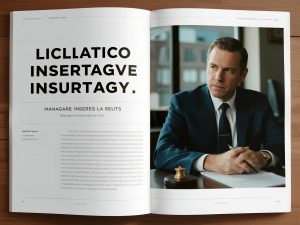Strategic High-Value Life Insurance Solutions for Ultra-High-Net-Worth Families The landscape of wealth preservation has evolved dramatically in recent years, with sophisticated high-value life insurance USA strategies emerging as cornerstone components of comprehensive financial planning for families with substantial assets. These specialized insurance solutions transcend traditional protection concepts
to become powerful wealth transfer vehicles, estate planning tools, and risk management frameworks that address the unique challenges faced by ultra-high-net-worth individuals. The fundamental premise behind these advanced insurance strategies recognizes that substantial wealth brings both opportunities and complexities that conventional financial products cannot adequately address. Families with significant assets require customized approaches that consider not only immediate protection needs but also long-term wealth preservation objectives, tax efficiency considerations, and intergenerational transfer planning. The integration of life insurance into broader wealth management strategies has become increasingly sophisticated, with products designed specifically for high-net-worth scenarios offering features and benefits that align with the complex financial ecosystems of affluent families.Modern high-value life insurance USA offerings distinguish themselves through their ability to provide substantial death benefits while simultaneously serving as tax-advantaged wealth accumulation vehicles. These policies typically involve premium commitments that would be impractical for most consumers but represent strategic allocations for families seeking to optimize their
overall financial positioning. The underwriting process for these substantial policies involves comprehensive financial analysis, medical evaluation, and risk assessment that goes far beyond standard insurance applications. Insurance carriers specializing in this market segment employ teams of experts who understand the nuances of high-net-worth financial situations, including complex ownership structures, international asset holdings, and sophisticated estate planning arrangements. The customization available through these specialized products allows families to tailor coverage to their specific circumstances, whether the primary objective involves estate tax liquidity, business succession planning, charitable giving strategies, or wealth transfer to future generations. The flexibility and sophistication of these solutions have made them indispensable tools for financial advisors serving ultra-affluent clients.Comprehensive Whole Life Insurance Strategies for Wealth Preservation
Sophisticated whole life insurance for wealth accumulation represents one of the most established and reliable strategies for long-term financial security among high-net-worth families. These permanent insurance policies offer guaranteed death benefits, fixed premium structures, and cash value accumulation that grows at conservative but predictable rates. The fundamental appeal of whole life insurance in wealth preservation contexts lies in its combination of protection and growth elements within a tax-advantaged structure. The cash value component grows tax-deferred, allowing policyholders to accumulate wealth without annual tax implications, while the death benefit typically passes to beneficiaries income-tax-free. This dual benefit structure makes whole life insurance particularly valuable for families concerned about estate tax liabilities, as the death benefit can provide liquidity to pay taxes without forcing the liquidation of other assets. The guaranteed nature of the policy benefits provides certainty in financial planning, which is especially valuable during periods of market volatility or economic uncertainty.
The implementation of whole life insurance for wealth strategies requires careful consideration of premium allocation, policy structure, and integration with broader financial plans. High-net-worth families often utilize these policies within irrevocable life insurance trusts (ILITs) to remove the death benefit from their taxable estates, creating an efficient wealth transfer mechanism. The cash value accumulation feature allows policyholders to access funds through policy loans or withdrawals during their lifetime, providing flexibility for opportunities or emergencies without triggering taxable events. The dividend-paying feature of participating whole life policies offered by mutual insurance companies adds another dimension to wealth accumulation, as these dividends can be used to purchase additional paid-up insurance, reduce premium payments, or be taken as cash. The conservative nature of whole life insurance makes it particularly suitable for the portion of a wealth preservation strategy dedicated to capital protection rather than aggressive growth. When properly structured and maintained, these policies can serve as foundational elements of multi-generational wealth transfer plans, providing both immediate protection and long-term financial benefits.
Advanced Indexed Universal Life Insurance for Growth-Oriented Strategies
Innovative indexed universal life insurance products have emerged as powerful tools for high-net-worth individuals seeking market-linked growth potential with downside protection features. These sophisticated insurance contracts combine the death benefit protection of traditional life insurance with the opportunity to earn returns based on the performance of major market indices such as the S&P 500. The fundamental structure of these policies involves premium allocations to both insurance coverage and investment components, with the cash value portion credited with interest based on index performance subject to caps, floors, and participation rates. The appeal of indexed universal life for wealth accumulation strategies lies in its ability to provide growth potential during market upswings while protecting against losses during downturns through minimum guaranteed interest rates. This balanced approach resonates with high-net-worth investors who seek exposure to market returns without assuming the full risk of equity investments.
The flexibility of indexed universal life insurance contracts makes them particularly suitable for dynamic financial situations that may evolve over time. Policyholders can adjust premium payments within certain limits, change death benefit amounts, and reallocate cash values among different indexing strategies offered by the insurance carrier. This adaptability allows high-net-worth individuals to respond to changing financial circumstances, tax laws, and personal objectives without needing to establish new insurance contracts. The tax advantages of these policies mirror those of other permanent life insurance products, with tax-deferred cash value growth and income-tax-free death benefits providing significant advantages for wealth transfer planning. The transparency of indexed strategies, with clear mechanisms for interest crediting and caps, appeals to sophisticated investors who prefer understanding exactly how their returns are calculated. When used within comprehensive wealth management frameworks, indexed universal life insurance can serve as both a protection vehicle and a tax-efficient accumulation tool that complements other investment holdings. The combination of market participation with principal protection features creates a unique value proposition for conservative growth strategies within overall wealth preservation plans.
Executive Disability Insurance Protection for High-Income Professionals
Comprehensive executive disability insurance represents a critical component of risk management for high-net-worth individuals whose substantial incomes form the foundation of their wealth accumulation capabilities. These specialized insurance products provide income replacement benefits in the event that illness or injury prevents executives, professionals, and business owners from performing their occupational duties. The fundamental importance of disability protection escalates significantly for individuals with high earnings, as their ability to generate income represents their most valuable financial asset during their working years. Standard disability insurance policies typically contain benefit limitations that would prove inadequate for executives with substantial compensation packages, making specialized high-limit coverage essential for proper protection. These policies are designed to replace a significant portion of income while accounting for complex compensation structures that may include salary, bonuses, equity compensation, and other variable components.
The sophistication of executive disability insurance contracts extends beyond basic income replacement to include features specifically tailored to high-earning professionals. These may include own-occupation definitions that provide benefits if the insured cannot perform the specific duties of their regular occupation, even if they could work in another capacity. Residual disability benefits address partial disabilities that reduce but don’t eliminate earning capacity, while cost-of-living adjustments ensure that benefits maintain their purchasing power during extended claim periods. The underwriting process for these policies involves detailed financial analysis to establish appropriate benefit amounts based on documented income levels and future earning potential. Many high-net-worth individuals utilize individual disability insurance to supplement group coverage provided through employers, creating layered protection that ensures adequate benefits regardless of employment status changes. The integration of disability insurance with other wealth protection strategies creates a comprehensive safety net that preserves both current lifestyle and future wealth accumulation potential. For business owners, specialized disability buy-sell insurance can provide funding for business continuity plans if a key executive becomes disabled, protecting both personal and business financial interests.

Premium Private Health Insurance Plans for Comprehensive Coverage
Elite private health insurance premium plans offer unparalleled healthcare access and coverage quality for high-net-worth families seeking the highest standards of medical care and service. These premium insurance products transcend standard health coverage to provide comprehensive protection that includes access to top medical facilities, renowned specialists, concierge medical services, and international healthcare options. The fundamental distinction of these plans lies in their emphasis on service quality, choice flexibility, and comprehensive coverage rather than mere cost containment. High-net-worth individuals recognize that health represents their most valuable asset, making premium healthcare coverage not merely an expense but a strategic investment in maintaining productivity, quality of life, and longevity. These insurance plans typically feature extensive provider networks that include leading medical institutions, minimal restrictions on specialist access, and streamlined claims processing that eliminates the administrative burdens often associated with standard health insurance.
The structure of private health insurance premium plans reflects the unique needs and expectations of affluent families who value discretion, personalized service, and comprehensive protection. Many premium plans offer direct billing arrangements with healthcare providers, eliminating out-of-pocket payments and reimbursement paperwork. International coverage components ensure that policyholders receive quality healthcare regardless of their location, with emergency medical evacuation services providing access to appropriate facilities when traveling. Concierge medicine features connect families with personal medical coordinators who assist with appointment scheduling, specialist referrals, and care coordination across multiple providers. The preventive care emphasis in these plans includes comprehensive executive health screenings, genetic testing, and personalized wellness programs designed to maintain optimal health rather than merely treating illness. The integration of mental health services, alternative therapies, and innovative treatment options reflects a holistic approach to healthcare that aligns with the comprehensive wellness priorities of successful families. For high-net-worth individuals with complex medical histories or specific health concerns, these premium plans provide peace of mind through guaranteed issue options, pre-existing condition coverage, and lifetime benefit maximums that ensure protection regardless of future healthcare needs.
Integrated Wealth Transfer and Estate Planning Strategies
The strategic implementation of high-value life insurance USA solutions within comprehensive estate plans represents one of the most effective approaches to wealth preservation and transfer across generations. These insurance strategies serve multiple purposes within sophisticated estate planning frameworks, providing liquidity for estate tax obligations, equalizing inheritances among heirs, and creating legacy assets for charitable purposes. The impending changes to estate tax exemptions scheduled for 2025 make these planning strategies particularly timely, as many families may face significantly increased tax liabilities if current provisions sunset as planned. Life insurance policies held within properly structured irrevocable trusts can effectively remove substantial assets from taxable estates while providing precisely the liquidity needed to settle tax obligations without forcing the liquidation of other valuable assets. This preservation of family businesses, real estate holdings, and investment portfolios represents a critical advantage for families seeking to maintain their wealth across generations.
The coordination of whole life insurance for wealth transfer with other estate planning vehicles creates synergistic benefits that enhance overall planning effectiveness. Trust-owned insurance policies can be structured to provide flexibility for changing family circumstances while maintaining the asset protection benefits of trust ownership. The use of insurance in business succession planning ensures that surviving owners have the resources to purchase a deceased owner’s interest, facilitating smooth ownership transitions that preserve business value and continuity. For families with philanthropic objectives, life insurance can fund charitable gifts more substantially than might otherwise be possible, creating lasting legacies that reflect family values and priorities. The predictability of insurance benefits provides certainty in estate planning that other assets cannot match, allowing families to make definitive plans with confidence in the available resources. The tax advantages of life insurance, including income-tax-free death benefits and potential estate tax exclusion, make these strategies particularly efficient compared to alternative wealth transfer mechanisms. When integrated with comprehensive financial planning, these insurance solutions become powerful tools for achieving multiple objectives simultaneously, from wealth preservation and tax efficiency to legacy creation and charitable giving.
Risk Management and Financial Security Frameworks
Comprehensive risk management represents an essential discipline for high-net-worth families, with executive disability insurance and life insurance serving as foundational components of financial security planning. The interconnected nature of various risks facing affluent families requires integrated approaches that address income protection, asset preservation, liability management, and wealth transfer considerations simultaneously. Disability insurance protects against the risk of income interruption due to illness or injury, ensuring that lifestyle maintenance and wealth accumulation can continue despite health challenges. Life insurance provides protection against the ultimate risk of premature death, preserving financial security for dependents and business interests. The combination of these protection strategies creates a robust safety net that addresses the most significant threats to family wealth, allowing other assets to be invested more aggressively in pursuit of growth objectives without compromising overall financial security.
The implementation of sophisticated risk management frameworks involves careful assessment of individual circumstances, including current assets, income levels, family responsibilities, business interests, and long-term objectives. Private health insurance premium plans complement these protection strategies by ensuring access to quality healthcare that can prevent disabilities or facilitate recovery, ultimately supporting the effectiveness of disability coverage. The integration of these insurance solutions with investment management, tax planning, and estate planning creates comprehensive financial ecosystems that address both protection and growth objectives. High-net-worth families often work with teams of advisors including insurance specialists, financial planners, attorneys, and accountants to ensure that all aspects of their financial lives receive appropriate attention and coordination. This collaborative approach recognizes that effective wealth preservation requires more than just asset accumulation—it demands proactive risk management that identifies potential threats and implements appropriate safeguards before problems arise. The peace of mind provided by comprehensive insurance coverage allows successful families to focus on wealth creation and enjoyment rather than worrying about potential financial catastrophes that could undermine their achievements.
Future Trends in High-Value Insurance Solutions
The evolution of insurance products for high-net-worth individuals continues to advance, with emerging trends shaping the future landscape of indexed universal life insurance and other sophisticated protection strategies. Technological innovations are transforming underwriting processes, policy administration, and client service delivery, making these complex products more accessible and manageable for affluent families. The integration of artificial intelligence and data analytics enables more personalized pricing, enhanced risk assessment, and improved policy performance through optimized investment strategies. The growing emphasis on transparency and customization reflects increasing client sophistication and demand for products that align precisely with individual circumstances and objectives. Sustainability considerations are influencing product development, with insurance carriers incorporating environmental, social, and governance factors into investment strategies underlying cash value accumulation.
The regulatory environment continues to evolve, with changes to tax laws, insurance regulations, and financial reporting requirements influencing product design and implementation strategies. The anticipated sunset of current estate tax exemptions in 2025 has created urgency for families to implement planning strategies that lock in current favorable provisions. The globalization of wealth has driven demand for insurance solutions that provide international portability, multi-currency options, and cross-border compatibility to serve families with assets and interests in multiple countries. The professionalization of insurance advisory services has elevated standards for client service, with specialized firms offering comprehensive solutions that integrate insurance with broader wealth management frameworks. These evolving trends ensure that high-value insurance products will continue to play essential roles in helping affluent families protect, preserve, and transfer their wealth across generations while adapting to changing economic conditions, regulatory requirements, and family circumstances. The ongoing innovation within the insurance industry promises to deliver increasingly sophisticated solutions that address the complex needs of high-net-worth individuals through personalized approaches that combine protection, accumulation, and tax efficiency within comprehensive financial plans.




